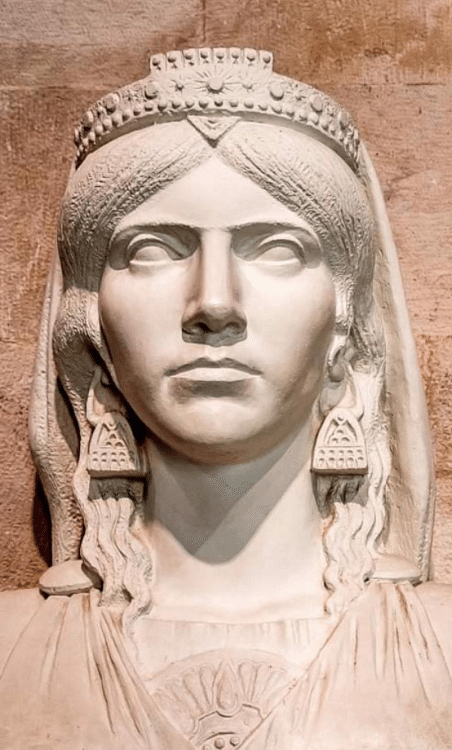
Teuta, The Albanian Warrior Queen

Teuta, The Albanian Warrior Queen


From about 400 BC to 167 BC the many tribes that made up the kingdom of Illyria occupied the region now known as the Balkan Peninsula.
By the mid-3rd century BC, one of the most powerful Illyrian groups was the Ardians, who ruled along the Adriatic coast from Montenegro to Bosnia and Herzegovina.
This kingdom began its expansion under the rule of King Agron, starting in 250 BC, and reached its full power under the control of his wife, Queen Teuta.
When he took the throne, Agron focused on building up Illyrian naval forces in the Mediterranean Sea and expanding his rule along the Adriatic coast. His plan began to work: the power of his kingdom grew, and he scored a decisive victory over the Aetolians (Greeks) in 232 or 231 BC (sources differ).
But legends say that in 231 BC, Agron celebrated his victory with so much drinking and other revelry that he suffered from an overdose of pleasure (inflammation of the lungs and chest) and died.
After his death, Teuta – whose early life, even the year of her birth, remains a mystery – took the throne and served as queen in place of Agron’s son and heir. She continued Argon’s expansionist policies, turning her sights on both Durazzo and Epirus, eventually conquering both.
However, perhaps more than the traditional Illyrian flag, Teuta’s most formidable force was her pirates who traveled the nearby seas.
Piracy in Illyria was legal and often considered a practical, if not entirely respectable, profession. Teuta had granted her ships freedom of the Mediterranean Sea, and Illyrian pirates were known for plundering merchant ships, which the Illyrians greatly feared.
Rome had many important trade routes along the Eastern Mediterranean between Greece and Italy, and Roman merchants were constantly threatened by pirates who raided their ships and stole their goods. The merchants’ complaints filled the Roman Senate, until they could no longer ignore the exploits of the pirates.
To begin with, the Romans decided to try diplomatic tactics with Teuta around 230 BC. Rome sent two ambassadors to Illyria to convince Teuta to take care of her ships and stop pirates from plying Roman trade routes.
But when they arrived there, Teuta refused, telling them that piracy was not illegal in the Ardian Kingdom, so the pirates had broken no laws, and she would not change the laws to accommodate Roman merchants. Not only did she refuse to relent, but she seemed so insulted when she heard the request that she ordered the ambassadors’ ships to be seized. Furthermore, she held one ambassador captive and killed the other.
When news of their ambassador’s death reached the Roman Senate, they were forced to declare war on Teuta. In 229 BC, Rome declared war on Illyria. They sent a fleet of 200 ships and about 20,000 land soldiers across the Adriatic Sea.
They reached the city of Corcyra, where Teuta’s governor, Demetrius, betrayed him, immediately surrendering control of Corcyra to the Romans and joining their side as an advisor. From there, Roman troops advanced north into Apollonia, attacking cities along the way until they reached the capital of Shkodra.
The Illyrian forces were no match for Rome’s military might, and Teuta was forced to retreat south. By 228 BC, Rome had gained control of the entire Illyrian coast.
Teuta formally surrendered to Rome in 227 BC. Rome declared peace and allowed Teuta to continue ruling, albeit over a much smaller region. She was also forced to pay tribute to Rome, acknowledging their absolute sovereignty.
But rather than face the humiliation of a limited kingdom under Roman control, Teuta abdicated.
The details of her life thereafter remain unclear, but most sources state that she lived for several more years after the Roman defeat. According to some oral accounts, Teuta never recovered from her grief over her defeat by the Romans.
Instead, she chose to end her life by jumping off a cliff in the Bay of Kotor in present-day Risan, Montenegro.
As legend has it, the queen’s death brought a curse upon Risan, making it the only city without a maritime tradition. However, Teuta’s cause of death and even the year of her death have not been confirmed, and her grave has never been discovered.
by: www.antidrroga.com
Tags: history, queen, teuta


